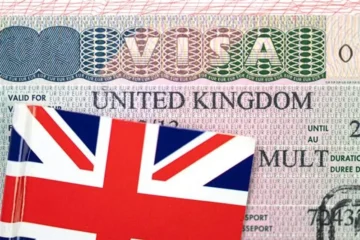If you’re thinking about moving to the UK in 2025, here’s the first reality check: the immigration landscape has changed significantly. Between 2024 and 2025, the UK government rolled out a series of visa reforms that dramatically affected approval rates. Applications for long-term visas—including work, study, and family categories—fell by over 33%. Much of this stems from new restrictions like higher salary thresholds for work visas and stricter dependents policies for students.
Key Takeaways
What Changed in the UK Visa System Between 2024 and 2025?
For example, the Skilled Worker visa now comes with a raised minimum income requirement of £38,700, up from £26,200. Similarly, international students are no longer allowed to bring dependents unless enrolled in postgraduate research programs. These changes are part of a broader strategy to reduce net migration—which halved between 2023 and 2024—and the message is clear: the UK wants fewer, but more “qualified,” immigrants.
Why Are Work and Study Visas Facing Higher Rejection Rates?
Rejection rates have spiked largely due to three key factors: tightened financial requirements, dependent restrictions, and increased scrutiny of applications from countries considered “high-risk.” For work visas, the salary thresholds are pricing out many professionals, especially those in social care or entry-level roles.
Student visa applicants are also under pressure. Bans on dependents (except for research postgrads) and stricter financial checks are causing more refusals. Some universities are even pre-screening applicants more rigorously or shifting focus to regions with higher success rates. It’s no longer just about getting an offer—you need a compelling, fully-documented case.
Who Is Most Affected by the New UK Visa Rules?
The rules haven’t hit everyone equally. Care workers and health professionals—who previously benefited from visa prioritization—are now struggling due to the new salary thresholds and curbs on dependents. Students from South Asia and Sub-Saharan Africa, who often traveled with family, are also seeing higher rejection rates.
Family visa applicants are finding the door narrower, too. With income thresholds rising to £29,000 and set to increase again to £34,500 in late 2024—and possibly £38,700 in 2025—sponsors earning below these benchmarks face limited options, unless they meet savings or exceptional circumstance criteria.
How Can Skilled Workers Meet the New £38,700 Salary Threshold?
Meeting the £38,700 threshold is now essential for most Skilled Worker applicants—unless you’re in a job on the shortage occupation list or a new entrant (under 26, recent graduate, or in a graduate training program). Those applying for care roles, for example, will find it nearly impossible unless their employer is paying above the national average.
Some sectors—like engineering, tech, and finance—remain viable for those with the right qualifications and experience. Applicants must check updated salary bands on the official Home Office tables and confirm that the job is eligible for visa sponsorship under the new regime.
Also Read: How Much Do You Need to Earn to Sponsor a Civil Partner in the UK?
What Are the New Requirements for Student Visa Applicants?
For students, the policy shift is even more personal. From January 2024, most international students can no longer bring dependents unless they’re pursuing a PhD or other research-focused postgraduate qualification. The required proof of funds remains high—currently around £1,334 per month for London-based institutions—and students must pay the full visa fee and health surcharge upfront.
Universities are adapting by trimming offers to applicants from regions with historically low compliance rates or focusing recruitment on more “visa-resilient” demographics. Students must show clear financial support, a genuine study plan, and strong ties to their home country.
Is the UK Family Visa Now Out of Reach for Most Applicants?
Sponsoring a partner or family member just became much harder. The income requirement has jumped to £29,000 as of April 2024, and it’s heading to £38,700 by early 2025. For many families—especially those outside London—this is simply unaffordable.
Unless the sponsor can rely on substantial savings (at least £88,500 in cash for the higher threshold) or qualify under exceptional grounds, applications are at risk of refusal. Legal experts warn this could break apart genuine families or push applicants toward long-winded appeals.
Tips to Avoid Rejection: What You Must Do Before Applying in 2025
Let’s talk solutions. If you still want a shot at that UK visa, here’s what you need to focus on:
- Choose the right visa route: If you’re applying for a work visa, aim for jobs with salaries above the threshold or in shortage occupations.
- Get your documents in order: Decision-makers want clarity. Submit accurate, complete applications with all required documents—employment contracts, proof of funds, English language certificates, and more.
- Work with licensed sponsors: Avoid middlemen and unauthorized agents. Only apply through UK-approved sponsors and institutions.
- Check if you’re “decision-ready”: The Home Office now prioritizes well-prepared applications. Double-check before you hit submit.
- Explore lesser-known options: Some youth mobility or graduate schemes still offer valid entry points, particularly if you’re under 30 or have UK ties.
Final Thoughts
2025 isn’t the easiest time to apply for a UK visa, but it’s not impossible either. It’s all about preparation, compliance, and choosing the right route. As the UK tries to tighten control over migration, applicants must step up with stronger, cleaner applications. Whether you’re aiming to study, work, or reunite with loved ones, getting through the process will take more than just hope—it’ll take strategy.
Reference: https://commonslibrary.parliament.uk/research-briefings/cbp-10267/





